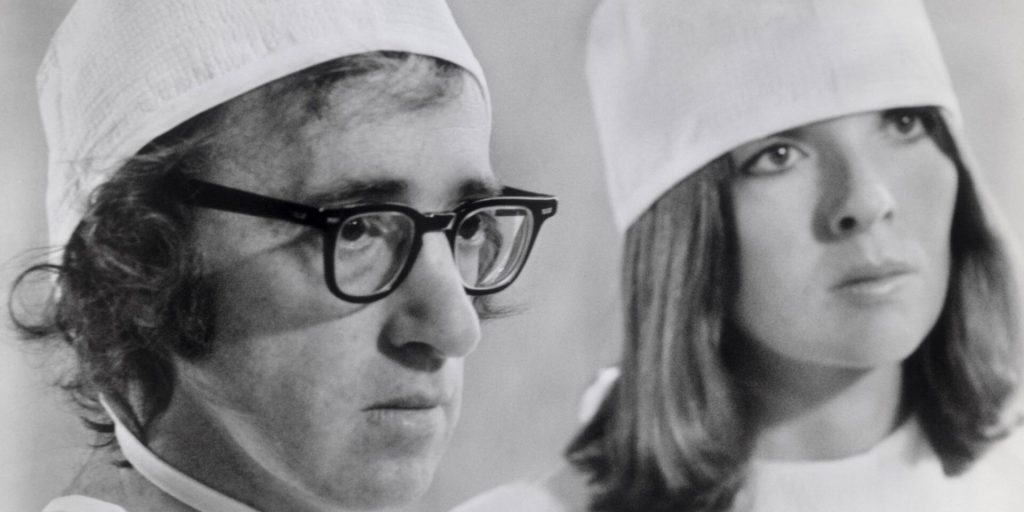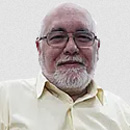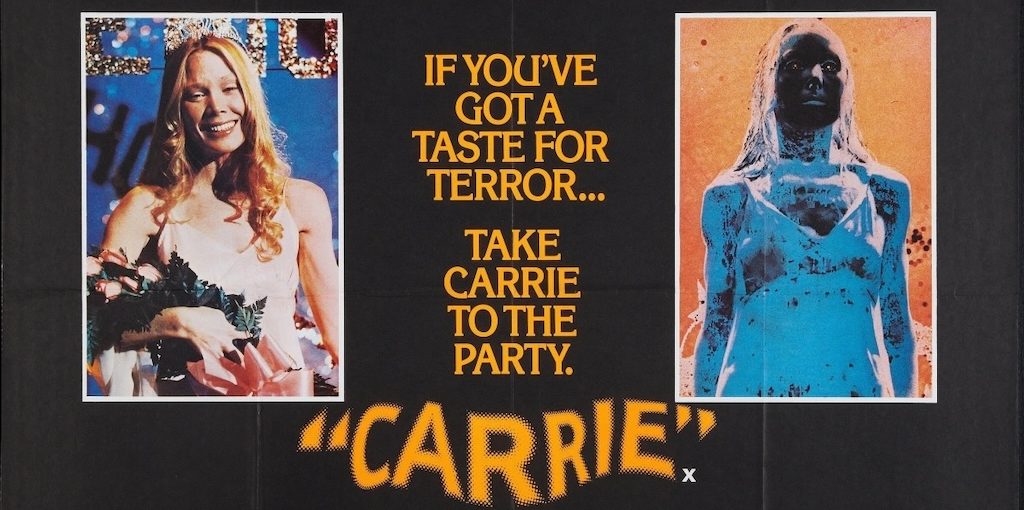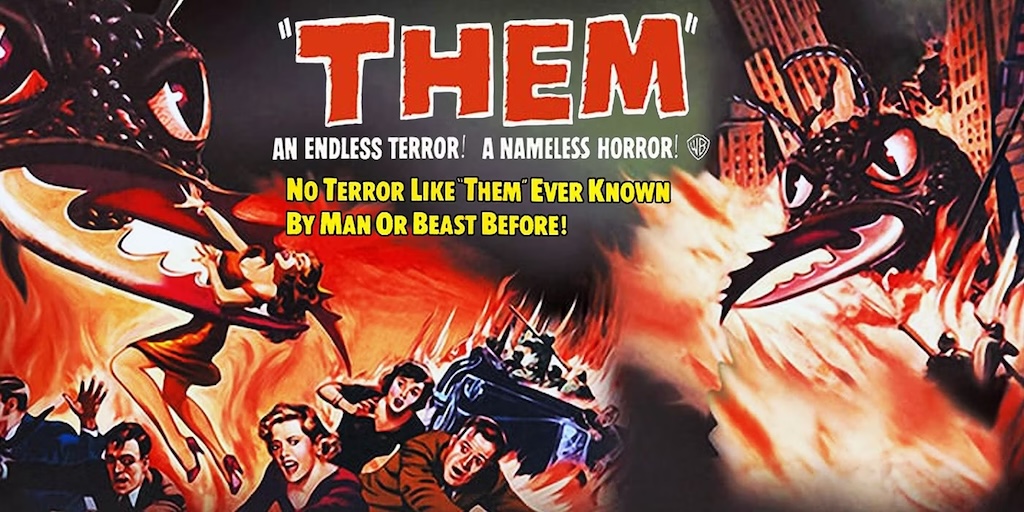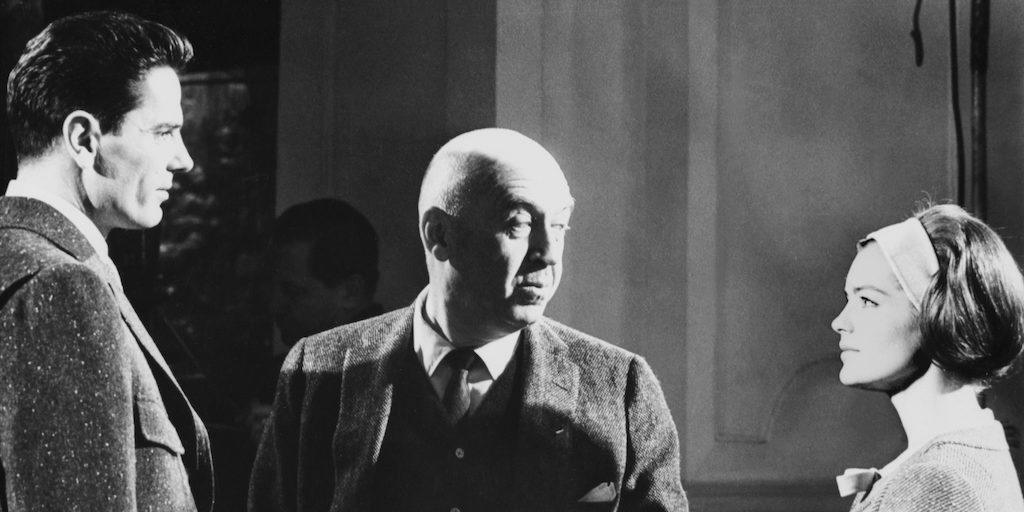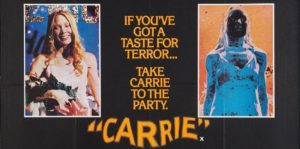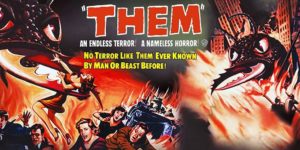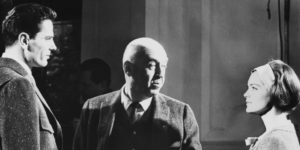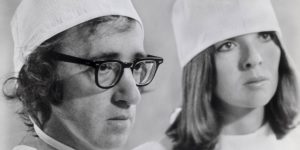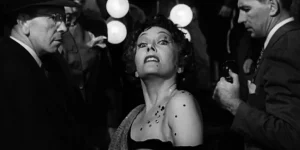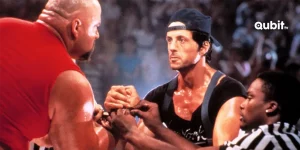“Good you woke up, Pauline. It already stopped snowing and in an hour we’ll stop for gas and have some coffee and croissants. Are donuts OK for you…? You know something? While you were sleeping, quite deeply, it seemed to me you were mumbling a word… Do you remember it?”
“…”
“What? Rosebud?”
“…”
“Oh, no… you mean Rose Budnick… Tell me, did you woke up in a funny mood? Why you didn’t? That’s a joke from Rifkin’s Festival, and you aren’t gonna tell me that now, after all these years, you like Woody Allen? But how could you see it? Didn’t you…?”
“…”
“If I like him? Look, I wouldn’t be capable to use a petty verb such as “liking” when I talk about him (Boy, Pauline, do I pamper you with adjectives that seduce you!). My relationship with Woody Allen goes beyond cinema; it started when I was 15. Could you talk about someone that accompanied you almost your entire life, going through the good times and bad, like any other director out of the many that rise daily and are forgotten immediately?
“…”
“How did I discover him? It wasn’t at the movies. At that age I was taking English lessons at a place where, as usual, there were girls I liked; especially one, M.d.C. A smart sneaky little brunette, with dark vivacious eyes and a slightly mischievous smile. Just like yours, Pauline.”
“…”
“Oh, c’mon, don’t be nosy. Here we’re gonna talk with initials, like in 19th century novels. It is enough with me confessing you certain personal things. Ok, then. One afternoon, to impress M.d.C., before going into class I bought a copy of Time Magazine at the neighborhood newsstand and I took it to the group, intermingled with my notes and books. I have set my sights on her to believe I read English magazines. And do you know who was on the cover of that very first Time magazine I ever bought? You guessed it, right? Quite young, scrawny, sitting on the floor; plaid shirt, jeans, patent-leather shoes, hugging his knees and looking at camera like saying “Is it done? Can I go now?” I’ll never forget that cover: ‘Everything You Always Wanted to Know About Woody Allen.’ M.d.C. saw it. How couldn’t she? I almost had to fake drop my books and throw the magazine into her lap, like if I was careless or something. She took the magazine in her hands, and almost disdainfully she asked me ‘Who is this guy with the weird poker face?’ And I, who before entering the classroom had no time to leaf through the magazine, had to admit ‘I don’t know’. ‘And what did he do?’ she added. With a rather strong mortification I had to admit: ‘I don’t know it either.’ ‘Oh,’ said then M.d.C. with a mocking smile and capped it off with impeccable logic as she returned the magazine to me ‘So why don’t you buy a magazine you can understand?’ That was the magic moment, Pauline. Winter of ’72, the very cold winter of ’72 when the Metropolitan theater was showing The Godfather and Placido Domingo opened at the Colón Theatre, that moment where that magic he likes so much, where Woody Allen and me, without ever knowing him, were the same person. Ever since, we never split. Years later, while I was watching Play it Again, Sam, I had the sensation he acted out my story with M.d.C. to the girl introduced to him by Diane Keaton in the moment where he bragged to her, but instead of a Time Magazine it was a ridiculous medal won at a school tournament, or when he showed her a jazz record and the vinyl disc came out flying out of the cover. Not even a real friend understood me the way he did. ”
“…”
“I know, I know, Herbert Ross directed Play it Again, Sam, but Woody Allen wrote it. No offense, Pauline, but you critics can be quite insufferable. Moving on, and I promise to be more precise. Since that unforgettable evening I set myself to know everything there is to know about Woody Allen. I read the Time article, aided by my Webster’s and the next weekend, I found to my joy that Take the Money and Run was playing within a triple feature at the Palermo Rose Garden. What a feast! I couldn’t believe that this much invention put together existed. I saw it twice, that is I arrived with the movie already starting and I stayed to see the other two (a western and a horror movie) until the next screening, but I didn’t see the few minutes I’ve lost, but the whole movie, all over again. My friend from Entre Rios, the great announcer L.G., confessed to me that the scene where the rain dissolves the carved soap gun is one of the funniest he’d ever seen at a movie theater. Can you see, Pauline, how Woody Allen is connected to so much people in my life? And I haven’t told you anything yet.”
“…”
“Wait, don’t be hasty. Already at college, I started a friendship with a Filipino descendant, F.H., who was an even bigger fan than myself. She arrived to class with the time tables circled on the newspaper: ‘Hey, they’re showing Sleeper. Don’t miss it.’ And so, little by little, I saw all the titles of his early years, especially at the Cosmos 70 Theater. The copies were scratched, with jump cuts, the way old movies were used to be seen. Everything You Ever Wanted to Know About Sex…, Love and Death, Bananas. Oh, my God! I’ve never regretted so much of having seen Bananas with a bunch of guys from college. Since they were all majoring in Literature they were outraged at the ‘anti-castrism’ of capitalist Woody Allen. And even at the temple of Moscow’s Sovexport Film! Morons! I think they even made an effort not to laugh with the skit of ‘Orgasm’ magazine. Do you want a croissant? They’re not very fresh, but we’re still a couple miles away from our destination.”
“…”
“What came afterwards? The Oscars, fame and popularity: Annie Hall. Theaters started to pack with people that, otherwise, would’ve never seen a film of his. Luckily, it didn’t last long: But, oh, Pauline, the therapists were bought into this thing big time. I suppose you already know that some of my girlfriends were in that line of work, reason why I had to overcome endless Saturday nights, with the air stale of pipe smoking and the hundreds of interpretations on denial, repression and desire in What’s Up, Tiger Lily? And you don’t wanna hear what they had to say about Interiors. A feast! There was one, E.T., the dullest of them all, a champion of free association. You have no idea how bad I wanted to find Woody hidden behind the living room curtains, bring him to E.T. the same way it happened with that moron at the movie line and Marshall McLuhan in Annie Hall, so Woody could say to his face: ‘It’s not anything like that, you moron! You didn’t understand a thing!’”
“…”
“That was the last movie I saw as an “ordinary” citizen, which is paying for a ticket. When Manhattan came along I was already in the trade, but I was commenting on books rather than movies and who invited me to the critics’ screening (at the Luxor Theater on Lavalle Street on a glorious December morning) was one of many friends who despite enjoying Woody Allen to a fault, later disapproved of him. This friend jumped with spasms, as if the seat were electrocuted, with the joke Allen makes about Grandma Moses. I can’t seem to recall if that very day or the next the ratings committee prohibited the movie, making us the very few privileged to have seen it. The censorship committee didn’t ask for a cut, but for the removal of a subtitle when Meryl Streep tells Woody Allen that she’s leaving him for another woman. But Woody Allen said no. I was desperate to see once again that black and white anamorphic cinematography, listen to Gershwin’s music, that initial monologue (Chapter One…) The wonders of the human spirit! The solution: I suggested to my girlfriend at that time, A., also a therapist, that we should take a couple days off at Punta del Este. She was greatly surprised by the gesture since I was never fond of that city. So we went there. The first thing I did, of course, was buy tickets for Manhattan, which I enjoyed much more this second time around. After the movie was over, she told me she enjoyed it too, and reminded her of a Sidney Sheldon novel. We split upon returning to Buenos Aires.
“…”
“Don’t be scared, Pauline, I’m not gonna overwhelm you with all his filmography, or everything I’ve written about him, or the people I’ve met, loved and hate with every title who are forever associated to them. It would take us several trips to cover it. I think I told you that like the Greeks with the Olympics, I associate a year with the release of each of his films. If you tell me 1983, I think of Zelig; if it’s 1984, I think of Broadway Danny Rose; if it’s 1986, it’s Hannah and her Sisters; if it’s 1991, the unfairly attacked Shadows and Fog; if it’s 1995, the purely glorious Mighty Aphrodite; if it’s 2010, You’ll Meet a Tall Dark Stranger, a superb film that had an unceremonious passing. But, excuse me, I must stop in two particular years: one, because of a movie; the other, because of something personal.”
“…”
“Want me to go with the movie first? OK. That would be Crimes and Misdemeanors, 1989. I saw it one night at the Aries Cinematográfica screening room (Boy, how many things have disappeared from Buenos Aires ever since!), because back then, Woody Allen’s pictures were made at Orion, and Aries distributed in Argentina all the titles coming from that studio. The credits were over, the lights were on, the projectionist was waiting for me to leave so he could close the place for the night, and I couldn’t leave my seat. I did so with a great deal of effort, walked out into Lavalle Street without saying goodbye to anyone, from there I walked to Callao Street, from there to Cordoba Street, and from there straight to home. I couldn’t stop walking. I felt that I attended the release of a Dreyer film, not to mention other filmmakers that might upset you, Pauline. Woody Allen, who once said that he’d like to make one masterpiece before dying, did it. ‘God is a luxury I can’t afford,’ the guilt, the impossibility of redemption, the blindness of faith, the futility of optimism, the betrayal. And, as if we were missing out on something, towards the ending, the greatest joke of his career: one about the love letters plagiarized from James Joyce. No, I’m not gonna tell you, see the movie again. Sure you don’t want a croissant? Ok, then. So I was walking down the street, and I couldn’t take out of my mind that first movement of the String Quartet No. 15 that Schubert wrote for him. Because you can’t fool me: Woody Allen commissioned it to Schubert; any other music would have been impossible. That night I knew, from that moment, that none of his other movies would equal it. It was impossible. In 2005 he released Match Point that was a commentary, an essay, an adagio for Crimes and Misdemeanors, but nowhere like it. By the way: should you find yourself in a dark night of the soul, don’t even dare to think of listening, in a 78 RPM version, Bizet’s ‘Mi par d’udire ancor’ as sung by Enrico Caruso. It’s the saddest aria in the world, and is the one with which Match Point begins.”
“…”
“Oh, the personal story. OK. In 1993 I went to New York for the first time. Manhattan was splendid and now in color; the World Trade Center was still standing and Elaine’s and Tower Records were still open, and Virgin Records at Times Square and Border’s, and the many stores at Greenwich Village selling VHS and LaserDiscs of cult movies. By this I mean all the things that made this world a little bit nicer to live in, and are not around anymore. And naturally, Michael’s Pub, at 55th street, was still open. That was the place where Woody Allen played the clarinet live with the New Orleans Jazz Band! Guess where I went first? It was Saturday, two days before the event, but there were seats available. However, before I made the reservation for the dinner-show, I wanted to be sure and I asked the man at the box office: ‘Will Mr. Allen play with his orchestra this Monday?’ Without even a hint of courtesy he answered: ‘Mr. Allen’s orchestra will perform on Monday. Sometimes he comes, sometimes he doesn’t.” Ok, so I insisted with another pointless question: ‘And you can’t know beforehand if he’s going to come?’ I received a ‘No’ for an answer. It was a matter of booking the table and keep my fingers crossed.”
“…”
“Yes, with yet another therapist. But wait: as I was paying, my audacity reached such a point I dared to say: ‘When is Mr. Allen coming? Is he coming with his publicist? I’m an Argentine journalist and I’d like to talk to him after the show, even if it’s a few minutes’ Then I showed him my Press Identification. He looked it without touching it, as if it was the Costco membership card. He only answered ‘No,’ and gave me the tickets.”
“…”
“And so, Monday arrived. It was a nice place, there was ––to my surprise–– some empty tables. Dinner was served rather quickly, some veal and spaghetti that weren’t bad at all. By the time dessert came, lights were dimmed and, down the left aisle, entered the musicians from the New Orleans Jazz Band and placed themselves on the small stage. He wasn’t there. Even though I wrapped my head around that idea before I entered, I got depressed. After some moderate applauses, the orchestra started with the first song and my depression was on the rise. New applauses, always polite, and they started with the second song. My soul was already like the dark night of St. John on the Cross. And was at that moment when, on the corner of my eye, I thought I saw two people entering, also near the left aisle, which in the dark seemed to me like two late arriving guests. That was until I turned my head and saw them, not behind a dark glass, but face to face: they were Soon-Yi and Woody Allen. My heart skipped a beat. She remained seated, he was standing, holding the clarinet, waiting for the orchestra to finish the song. Polite applauses came up once again and he stepped on the stage and placed himself among the musicians. The third song started, the sound of his instrument stood out among the ensemble. Given where I was seated we were almost face to face: I looked him in the eyes, hoping for a visual contact, a miracle, even for a second, so he could realize I was that petulant teenager that bought that Time magazine in ’72, but it wasn’t meant to be. He was concentrated in his music and in the music there is no space, there’s only time. When the sixth (?) song was over, he waited until the polite applauses toned down, stood up and left the place with Soon-Yi. The band performed another two songs and then we were invited to leave the premises. That was his strategy: not only wasn’t possible to talk five minutes with him, you couldn’t even say hello. And right he was. No one left there walking like Bogart in Play it Again, Sam.”
“…”
“Come again, Pauline?”
“…”
“Rosebud? Rose Budnick again? Are you gonna persist with the same joke until the end of this trip?”
“…!”
“Oh, sorry, dear Pauline! I didn’t get you! That was what you wanted to tell me and I didn’t understand? Rose Purple, Purple Rose of Cairo, The Purple Rose of Cairo. That is your favorite movie, isn’t it?”
“…”
“Of course you can. Entering and exiting the screen at will, stopping time. If you could see the lovely smile you have now, Pauline. Music is only time, but it’s incapable of stopping it. Only cinema can do that. You would be 15 again, and so would I and we would be black and white and immersed into the film. And at last, Pauline, I’d be able to answer M.d.C., who would also be in black and white: ‘That guy with the weird poker face is Woody Allen” and what did he do? ‘He made our lives a little bit happier.’”

